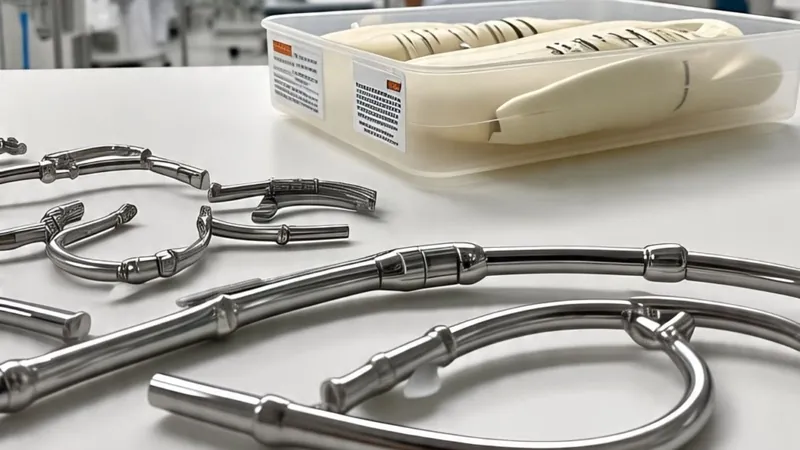
Are Hospital Superbugs the New Threat to Stents and Implants? Shocking Findings from New Study!
2025-05-22
Author: Wei
What Did Researchers Discover?
In a groundbreaking study, scientists have unearthed a chilling potential threat lurking within our hospitals: superbugs that can not only survive but thrive on medical plastics! Researchers turned their attention to harmful bacteria, particularly focusing on their ability to break down materials used in medical devices, such as stents and implants.
The study specifically isolated a strain of Pseudomonas aeruginosa, a notorious pathogen found in infected wounds. To their astonishment, the researchers discovered an enzyme, dubbed Pap1, capable of digesting polycaprolactone (PCL) plastic—commonly used in medical devices. In a mere week, Pap1 degraded an astonishing 78% of the plastic sample!
Why Should We Be Worried?
The implications of these findings are alarming. Firstly, this suggests that instead of just being a nuisance, these bacteria might find nourishment in the very materials designed to help us recover. This could allow them to thrive in sterile hospital environments, increasing their longevity even when other nutrients are scarce.
Secondly, the degradation of medical devices raises serious concerns about their functionality and reliability. The potential for compromised implants could lead to catastrophic failures for patients relying on these devices. Furthermore, the study revealed that these plastic-eating bacteria could create biofilms—thick layers of microorganisms—making infections tougher to treat and providing these pathogens with a protective shield against both the immune response and antibiotics.
Are Other Superbugs Just as Worrisome?
The concern doesn't stop with Pseudomonas aeruginosa. Researchers identified other formidable pathogens, including Streptococcus pneumoniae, Klebsiella pneumoniae, and Acinetobacter baumannii, that also possess genes linked to the production of plastic-degrading enzymes. This discovery increases the urgency for further investigations into these bacteria to fully understand the potential risks they pose in health care settings.
With superbugs showing the ability to consume harmful materials even inside our bodies, medical professionals may soon need to rethink the very materials and strategies used in patient care. The future of medical device safety could be at a critical crossroads.



 Brasil (PT)
Brasil (PT)
 Canada (EN)
Canada (EN)
 Chile (ES)
Chile (ES)
 Česko (CS)
Česko (CS)
 대한민국 (KO)
대한민국 (KO)
 España (ES)
España (ES)
 France (FR)
France (FR)
 Hong Kong (EN)
Hong Kong (EN)
 Italia (IT)
Italia (IT)
 日本 (JA)
日本 (JA)
 Magyarország (HU)
Magyarország (HU)
 Norge (NO)
Norge (NO)
 Polska (PL)
Polska (PL)
 Schweiz (DE)
Schweiz (DE)
 Singapore (EN)
Singapore (EN)
 Sverige (SV)
Sverige (SV)
 Suomi (FI)
Suomi (FI)
 Türkiye (TR)
Türkiye (TR)
 الإمارات العربية المتحدة (AR)
الإمارات العربية المتحدة (AR)